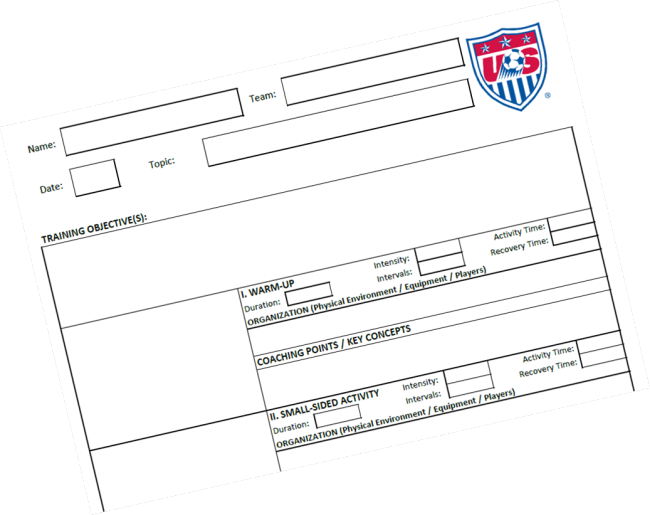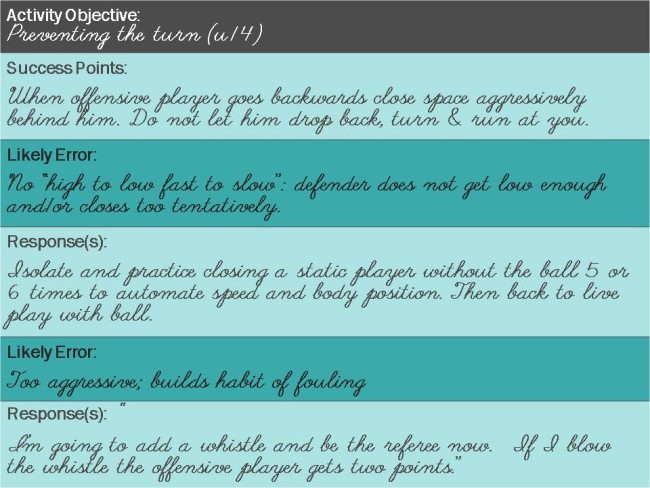01.13.16Annals of Coaching: Planning for Error
 One of the most effective activities we do with teachers–both at Uncommon Schools and in our trainings–is planning for error (Plan for Error is Teach Like a Champion 2.0 technique #7). The idea is that if you spend a few minutes before your lessons anticipating 1) what your students are likely to get wrong or misunderstand and 2) what you’d do about it if they did make the error in question, you are also much more likely to take action and change your approach if they struggle. This is much better than burying the data and pretending that students are learning to succeed. As John Wooden put it, a teacher or coach must “never mistake activity for achievement.” Plus by planning for error, coaches will over time develop skill at anticipating what students will struggle with. They get better at anticipating mistakes.
One of the most effective activities we do with teachers–both at Uncommon Schools and in our trainings–is planning for error (Plan for Error is Teach Like a Champion 2.0 technique #7). The idea is that if you spend a few minutes before your lessons anticipating 1) what your students are likely to get wrong or misunderstand and 2) what you’d do about it if they did make the error in question, you are also much more likely to take action and change your approach if they struggle. This is much better than burying the data and pretending that students are learning to succeed. As John Wooden put it, a teacher or coach must “never mistake activity for achievement.” Plus by planning for error, coaches will over time develop skill at anticipating what students will struggle with. They get better at anticipating mistakes.
For the most part it’s the same for coaches, so at a recent workshop I asked a group of coaches to imagine that they were planning a training exercise and to complete this Plan for Error template.
It asks them to do the following things as part of their planning:
- Identify the one most important thing they’d like to see their players do that would indicate very successful mastery. In other words: what differentiates doing the skill really well rather than just doing the drill. We call this a success point and when you’ve thought through in advance what excellence looks like, you’re more able to coach towards it and therefore to get it.
- Identify two likely errors players are likely to make in the session. What are they likely to misunderstand? Or: What’s hard to do and therefore players might struggle to do it even if they understand it.
- For each likely error I plan one action I could take in reaction if, during the session, I observe this error taking place.
This to me is a potentially game changing form of planning for coaches. Most coaches plan out the session they want. Far fewer plan out how they’ll get to success if things get tricky. So for me this is an exercise I’d highly recommend coaches do at least a couple of times per week. As I said, it’s proven immensely useful for our teachers.
To help you imagine it a bit more I’ve attached a sample Plan for Error template that filled out as if I–limited soccer knowledge and all–was going to run a training activity… in this case a defensive exercise on preventing an offensive player with the ball from turning.

In addition to this being a worthwhile activity in and of itself, I was struck by how valuable it was for coaches to discuss the errors they imagined seeing. After all they anticipated very different things, all of which were very insightful, and this taught them a lot about the types of mistakes to look for when players practiced.
